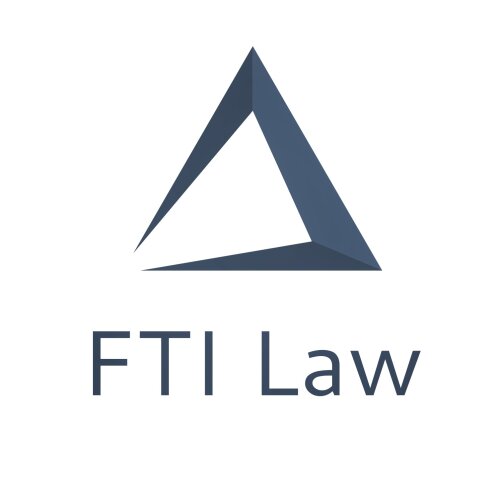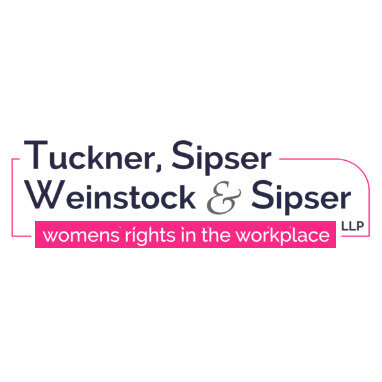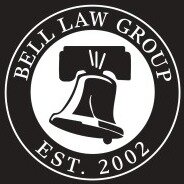Best Job Discrimination Lawyers in New York
Share your needs with us, get contacted by law firms.
Free. Takes 2 min.
Or refine your search by selecting a city:
List of the best lawyers in New York, United States
About Job Discrimination Law in New York, United States
Job discrimination occurs when an employer treats an employee or job applicant unfavorably based on protected characteristics such as race, gender, age, religion, disability, national origin, sexual orientation, gender identity, or other legally protected categories. In New York, both federal and state laws provide robust protections against workplace discrimination, applying to hiring, firing, promotions, pay, job assignments, training, and other aspects of employment. Employers are also prohibited from retaliating against individuals who file a discrimination complaint or participate in an investigation.
Why You May Need a Lawyer
A lawyer specializing in job discrimination can be invaluable in several common scenarios:
- You believe you have been denied a job, promotion, or raise based on a protected characteristic.
- You have experienced harassment or a hostile work environment due to your race, gender, faith, or other protected status.
- Your employer has retaliated against you for complaining about discriminatory treatment or participating in a discrimination investigation.
- You need guidance on how to file a complaint with governmental agencies such as the New York State Division of Human Rights or the Equal Employment Opportunity Commission (EEOC).
- Your employer has failed to provide reasonable accommodations for a disability, religion, or pregnancy.
- Your workplace is not upholding protections for LGBTQ+ employees under New York law.
- You want to understand your legal options and gather evidence before taking further action.
An experienced lawyer can help you understand your rights, negotiate settlements, or represent you in court if necessary.
Local Laws Overview
New York offers some of the most comprehensive anti-discrimination laws in the country. Key legal protections include:
- New York State Human Rights Law (NYSHRL): Prohibits employment discrimination on the basis of race, color, national origin, gender, sexual orientation, religion, age, disability, military status, marital status, and several other categories. This law covers most employers, including those with as few as one employee.
- New York City Human Rights Law (NYCHRL): Offers even broader protections for employees who work within the five boroughs of New York City, banning discrimination across a wide range of characteristics and often being interpreted more favorably to workers than federal or state laws.
- Federal Laws: Key federal protections include Title VII of the Civil Rights Act of 1964, the Americans with Disabilities Act (ADA), the Age Discrimination in Employment Act (ADEA), and others. These generally apply to employers with 15 or more employees.
- Reasonable Accommodations: Employers must provide reasonable accommodations for employees with disabilities, religious obligations, pregnancy, and more, unless doing so would impose an undue hardship on the business.
- Retaliation Prohibited: It is illegal for employers to punish employees or applicants for asserting their rights under anti-discrimination laws.
Frequently Asked Questions
What types of discrimination are illegal in New York workplaces?
Both New York State and City laws prohibit discrimination based on race, color, national origin, gender, age, religion, disability, sexual orientation, gender identity, marital status, pregnancy, and several other classifications.
How do I know if I am being discriminated against?
Look for patterns of unfavorable treatment compared to others, repeated offensive comments or behavior, denial of reasonable accommodations, unjustified disciplinary actions, or sudden changes in job responsibilities that seem linked to your protected status.
What should I do if I experience job discrimination?
Document everything in detail, including dates, names, and what happened. Report the issue to your employer through the proper channels, such as human resources. You can also consult a lawyer or file a complaint with an appropriate government agency.
Can my employer retaliate if I report discrimination?
No, retaliation is illegal under federal, state, and local laws. If you face negative consequences for reporting discrimination or supporting another person's claim, you may have a separate legal claim.
What is a reasonable accommodation in the workplace?
A reasonable accommodation is a change or adjustment to the work environment that allows an employee with a disability, religious belief, or pregnancy-related need to perform their job duties, as long as it does not cause significant difficulty or expense for the employer.
Do I need to file a complaint with my employer before going to a government agency?
You are not required to, but it is often recommended to follow your employer's internal grievance process first. However, you can still file a complaint with a government agency even if you have not done so.
How long do I have to file a discrimination complaint?
Timelines vary. In New York, you generally have up to three years to file a complaint with the State Division of Human Rights, one year for the City Human Rights Commission, and 300 days with the EEOC for most federal claims. It is wise to act as quickly as possible.
Does job discrimination only apply to hiring and firing?
No, anti-discrimination laws cover all aspects of employment, including promotions, pay, job assignments, benefits, training, layoffs, and more.
Can small business employees file discrimination claims in New York?
Yes, New York State law covers employers with as few as one employee, offering protection even in very small workplaces.
Will I have to go to court if I file a discrimination claim?
Not necessarily. Many cases are resolved through settlement, mediation, or administrative processes before reaching court. A lawyer can guide you on your options.
Additional Resources
If you need help or more information about job discrimination in New York, you may find these organizations and agencies helpful:
- New York State Division of Human Rights
- New York City Commission on Human Rights
- Equal Employment Opportunity Commission (EEOC)
- Legal Aid Society of New York
- New York Civil Liberties Union (NYCLU)
- Workplace Fairness
- National Employment Lawyers Association - New York Chapter
Next Steps
If you believe you are facing job discrimination, consider taking these steps:
- Gather and document all evidence of the alleged discrimination, including emails, memos, performance reviews, witness accounts, and any related communications.
- Review your company’s internal complaint procedures and promptly report the issue to human resources or a designated official.
- Consult with a qualified employment discrimination lawyer who can assess the specifics of your case and explain your rights and options.
- File a complaint with the relevant government agency (such as the New York State Division of Human Rights, the New York City Commission on Human Rights, or the EEOC) within the required timelines.
- Follow your lawyer's advice regarding negotiation, mediation, or pursuing legal action if your complaint is not resolved.
Taking informed and timely action can help protect your rights and support a successful resolution to your situation.
Lawzana helps you find the best lawyers and law firms in New York through a curated and pre-screened list of qualified legal professionals. Our platform offers rankings and detailed profiles of attorneys and law firms, allowing you to compare based on practice areas, including Job Discrimination, experience, and client feedback.
Each profile includes a description of the firm's areas of practice, client reviews, team members and partners, year of establishment, spoken languages, office locations, contact information, social media presence, and any published articles or resources. Most firms on our platform speak English and are experienced in both local and international legal matters.
Get a quote from top-rated law firms in New York, United States — quickly, securely, and without unnecessary hassle.
Disclaimer:
The information provided on this page is for general informational purposes only and does not constitute legal advice. While we strive to ensure the accuracy and relevance of the content, legal information may change over time, and interpretations of the law can vary. You should always consult with a qualified legal professional for advice specific to your situation.
We disclaim all liability for actions taken or not taken based on the content of this page. If you believe any information is incorrect or outdated, please contact us, and we will review and update it where appropriate.
Browse job discrimination law firms by city in New York
Refine your search by selecting a city.
















